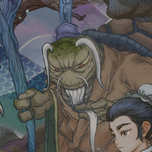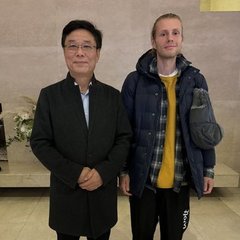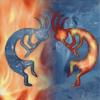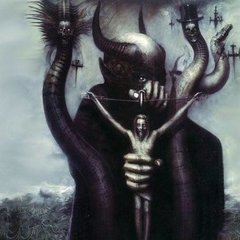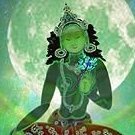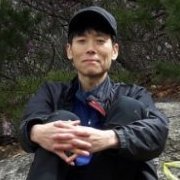Search the Community
Showing results for tags 'Taoism'.
Found 78 results
-
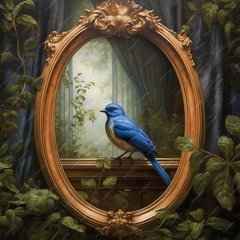
apology I finally understood the source of my anger and frustration toward Taoist and Taoism
Sleepy Bluejay posted a topic in Daoist Discussion
I have finally understood why I was angry and frustrated of Taoists denying my ideas and made-up technique. I failed to understand what we search for was different and our understanding of Internal Alchemy was never really the same. Classic Taoism & Internal Alchemy Classic Taoists are just fans of the Tao Te Ching, like old Chinese philosophy/poems and maybe even have a bit of religious believe in talismans and shamanism. Classic Internal Alchemists, however, believes in meditation where one think of deep, sometimes dark, things to overcome their traumas and inner demons. Their version of "spiritual" is psychological rather than supernatural. They use Qigong in hope of, not immortality or true longevity like living for 1000 of years, but to heal their mortal body and mind. I, however, was searching for the Xian immortal version of Internal Alchemy. To live for as long and how young I want, to become strong enough to split mountains and seas, like in the Xianxia novels. Before you say that was childish, yes it was, however, in my defends I do have and am diagnosed with atypical autism so I have all the right to be a bit childish and dream about the impossible. Also that buzzing feeling that keep take the shapes of the meridians on the acupuncture maps did make me believe of was right and you were wrong, blinding me with arrogance. I'm sorry for my outbursts and being mean. Totally not because my mom forced me as punishment for my arrogance... Joke aside. I will still leave this community because this community doesn't support my search of the Xian immortal art or whether it is real or not. Thank you for the experience of understanding arrogance. P.s. please delete my account as I will not be back. P.s.s. My Yin Yang Lotus technique wouldn't have caused Qi deviations since it focuses on moving/generating that (physical) buzzing feeling (not emotionally) rather than your inner thoughts and demons like classic meditation does. Bye.- 12 replies
-
- 1
-

-
- source of frustration
- source of anger
-
(and 3 more)
Tagged with:
-
Hi, I'm new to Taoism. I read the Tao Te Ching and researched about it. I really surprised by this way of thinking and I think I found my way of living by that. Before I know about Taoism, My lifestyle and my philosophy were very close to Taoism. That's why I'm so surprised by knowing about it! I'm an atheist, In my country, It's not very safe to be a part of anything instead of Islamism (unfortunately). So there is no community, there is no master, no temple and not many resources for practicing Taoism. I mean I really want to know and practice Taoism, Tai Qi, I really want to find the way and find the spirituality in myself. I feel like I can't do it by myself, with no resource or anyone who guide me. How can I continue?
-
Hello again everyone! I hope everyone is having a wonderful day today. I wanted to ask around today to see if anyone had any favorite places, music/sounds, smells, techniques, etc. for meditating. More specifically I'd like recommendations for meditation that will help me build up humility, ridding myself of the illusion of control, and generally being still and thinking on the sections of the Tao Te Ching (as I've been going back over the audiobook to take notes). I'm sorry if this isn't the proper place to ask this question but I'm still finding my way around the forum and haven't interacted with many forums before this one. Have a great day everyone <3
- 3 replies
-
- 2
-

-
- taoism
- meditation
-
(and 1 more)
Tagged with:
-

Is it true that one would cough out blood while meditating with their back against something?
Amituofo posted a topic in Daoist Discussion
I heard this from someone but I don't know anything else about this. Sometimes I lack energy or am sick and want or need something to lean on to meditate. If it's true, does it have to do with how the energy/qi interacts with the thing/wall we're leaning on and is this an issue only in deep or advanced meditation, or simply at any stage? Also, any sources on this if possible? I appreciate any help on this. 🙏 -
i found some good documentary about taoism
-
I've been involved with mediation for many years. Initially I was involved with Buddhist meditation but then I got involved with Taoist meditation through the teachings of Bruce Frantzis. Bruce often mentioned Dzogchen with high regard, so when Lama Lena (a highly esteemed Dzogchen teacher) came to teach for several years in a row very near to my home, I went along. I also came across Tenzin Wangyal Rinpoche (a Bon Dzogchen teacher) mainly through his online content, although I did travel to see him once. I have some curiosity concerning two apparently different categories of meditation practice. With Inner Dissolving (Taoist meditation from Bruce Frantzis), and Dzogchen both from Lama Lena and Tenzin Rinpoche, there is a notion of "progression" in the sense that we have obscurations/blockages/"pagchas"(like neuroses in Tibetan), and that through practice over time we can resolve these to move closer towards "enlightenment"/clarity/healing etc... In all these traditions, there is the possibility of using an agenda to work with specific issues in our lives, with a view to dissolving/resolving them at some root energetic level. This makes sense to me, and gives some kind of sense of structure/progression to my practice. I am aware that there are certain paradoxes that come from the idea/reality that we are "already there" (non-duality teachings etc.), and yet there is a firm understanding from the teachers I follow that we do actually need to meditate to attain(?) the fruits of meditation. Like the last lesson of Marpa to Milrepa - to show the callouses on his arse to emphasize the need for practice! In other traditions I've come across, such as the teachings of the FWBO (whatever they are now know as), Zen, Mindfulness etc. there seems to be a conspicuously different attitude towards "progress". You do the practice, whether it's mindfulness of breathing or body scanning or even working with emotions by "simply being" with them - but there is no sense in the practices I have come across of working with specific issues/blockages and resolving them at a root or energetic(?) level. It's more like "here we are again looking at our minds and sensations...." with no particular sense of direction or need to attain/achieve anything. I know that the need to achieve anything is seen as a hindrance in both categories of practice, but this is in some ways something of a contradiction. While of course grasping will not lead to freedom, nonetheless there is an implicit intention to get somewhere/something, in the very decision to become involved in meditation in the first place. So these are some of the observations and thoughts I'm having around my practice at the moment. Partly wondering which practices to emphasize to help me navigate a chronic illness, and also wondering about the notion of progress and achievement in relation to meditation. Very curious to hear your thoughts on all this.
- 18 replies
-
- 3
-

-
Hello everyone! is there anyone here who is or has practiced with Max and can train me online? I am already a member of primordial alchemist but I would like to learn more from other students who have been studying with him. I'll pay you for your time if you'd like as well. Thank you!
-
Good whatever time of day and night there it is where you are , I have come to this site in order to find answers to answers to the following questions: 1. can qigong fix scoliosis 2. can qigong really help you grow taller 3. can qigong really fix and change your bone structure (particularly the face)? 4. can qigong really be used to heal the body? After coming across this video on YouTube below along with another video with an older woman stating that her scoliosis was healed, I have a deep routed curiosity to know if chi can really heal the body this way. The video below is by a man named master Wong but I cannot find anything else by this man. In the video, he says that the bones are harder to change but the joints are easier, so the bones can changed? I'm curious. I have come across qigong in the past a long while back but was not in a position to really delve as deep as I would like into the subject. I spoke to a person that taught qigong and said in the chi world, anything is possible? I want to know more about qigong for the purpose of and I do not like to use this word in fear of sounding off my rocker but shape shifting. I do not believe that I can magically change into another person but to me it makes sense that certain parts of a person can change and heal. I do not think the story about the woman who used this practice to fix her scoliosis is far fetched. I have read many stories of the amazing things the body can do. I want to know to what extent qigong can be used to change and heal the body. This whole search could be in vain but for a long time, I have had the feeling that it is not and the only way to really find this out to leave no stone unturned. I will read whatever material I have to, and do whatever qigong practice I have to. So hello to anyone who is reading, I want to know all I can about qigong.
-
Hey everyone
- 2 replies
-
- taoism
- exercise problems
- (and 5 more)
-
I recently learned about an interesting website called The Book of Xian and Shen (BOXS), which catalogs information and pictures for Chinese gods from all over the world. There are currently 2,000 listings and counting. https://www.bookofxianshen.com/ It is based on the work of religious scholar Keith Stevens (d. 2016), who wrote the amazing Chinese Gods: The Unseen Worlds of Spirits and Demons (Collins & Brown, 1997) (fig. 1). I recently volunteered to help the project. So far, I’ve written two articles (see reference no. W1001 and W1011) and updated two other existing listings with information and pictures (see the bottom of W8620 and W9305). Fig. 1 – My well-worn personal copy of Chinese Gods (larger version). Due to the great number of listings, there are no direct links. Instead, the site has adopted a somewhat confusing (but necessary) cataloging system based around reference numbers, pinyin, Mandarin, and Wade-Giles. However, it’s easy to use once you get used to it. For example, if you were going to search for Sanqing, the “Three Pure Ones“, using, say, Pinyin, I recommend first getting the reference number (RefNo). Deities —> Tabular Listing of Xian Shen Deities —> Field: Pinyin —> Type: Contains —> Value: San qing (you may have to play around with the spacing like I did here) —> Filter —> Then look for the correct listing (since other listings mentioning them might appear in the list) —> ☰ —> copy the “RefNo”, in this case W5540 (fig. 2) —> Deities —> Deities Page with Full Listing Side Bar —> Field: RefNo —> Type: Contains —> Value: W5540 —> Filter (fig. 3) —> The listing (fig. 4) If you know the Mandarin or Wade-Giles for the deity you are looking for, the process would be similar. You would just need to change the field to “Mandarin” or “Wade-Giles”. You could just jump to “Deities Page with Full Listing Side Bar” to search using pinyin, mandarin, and Wade-Giles, but it’s been my experience that a different listing will pop up first based on a higher RefNo or Romanized spelling. First finding the reference number seems to be the easiest method for me. I can’t recommend this website enough. New gods, as well as new stories or beliefs associated with more established deities, are appearing all the time, so it is very important to catalog everything as soon as new information becomes available. If you would like to volunteer in some way, please contact Ronni Pinsler using the “contact” form on the BOXS website. Fig. 2 – How to acquire the reference number (RefNo) (larger version). Fig. 3 – How to navigate to the listing (larger version). Fig. 4 – The listing as seen from the top of the page (larger version).
-
In the Hindu tantric tradition, there is a concept of transmission of power via touch or a glance -- known as Shaktipat. There is also the concept of lineage transmission in Daoist traditions wherein the master will plant a seed or transfer the lineage to the student via touch. If you are at liberty to share, please do share your experiences. I'll start with my own. My teacher initiated me when I met him for the first time by placing his index finger on my forehead (third eye region). He asked me to inhale 3 times from there into my lower dan tien after he disconnected his finger. After I did, there was a flow from my third eye to my lower dantien and the room started "swimming". I felt a little light-headed and sat down for a couple of minutes. After that, when I reached home, in the night, a huge pressure started to build in my forehead. The only way to relieve it was via meditation and doing Taiji forms. So ended up meditating on and off for 3 days multiple times a day. Then for another 12 days, I would go into very spontaneous and intense meditative states and start performing Taijiquan forms 'automatically'. After the initial 15 days or so, where I was experiencing great bliss and large releases of energy, I started to feel like there was fine silk under my skin, covering my entire body. And a very clear separation happened in my consciousness -- with a permanent witness (which was there for a few years before I met my teacher too) forming, that would observe all happenings/activities - physical, mental, energetic. This witness awareness was completely at peace, at ease and unaffected by the ups and downs. If something happened in 'regular life' to shake things up in terms of equanimity and equilibrium, this other mind (my teacher calls it the Spiritual mind) would simply swallow the happening up -- and then life would continue to unfold spontaneously. Along with that, my practice deepened too. I started waking up between 3:30 and 4:30 every morning but would be in a state of hypnagogia. The mind was awake but the body asleep. I'd find vortices opening up over my being, pulling stuff out, cleansing, etc, etc. Beings would visit me and I would have spiritual conversations with them. Sometimes some would come to challenge me, but I seemed to know inherently how to deal with those challenges... Martially, abilities started to manifest exactly how my teacher told me they would. He had said to me, "It seems very difficult to comprehend now...but when you walk through that door, you'll look back and think...is that all there was to it?" I attended class twice a week with my teacher and each time he'd give me something new to work on, and it would manifest tangibly usually a week or so after he taught me. For example, he told me about how there was energy all around us, and that we could simply connect with it and harmonize with it...not needing to expend our own energy to do things like healing/martial techniques, etc. One day, as I was practicing in my family room, the room seemed to be filled with grayish-white smoke or fog. I thought my eyes were playing a trick..but there it was...a heavy fog up to my chest and all over, but most apparent from the ground up to my chest height. When I told my teacher about it the next time I met him, he said with a smile, "that's what I was telling you about..." I had also embarked on picking up Advaita Vedanta studies which I had put aside several years ago as unintelligible. This time when I picked it up and started my studies again, everything seemed to make perfect sense. That same spiritual mind recognized the truth in the teachings and realization followed realization...like a cascading chain reaction. But there were no fireworks...like a rapidly progressing series of little 'a-aha moments' (I think the zen Buddhists call these flashes kensho). In fact, anything spiritual that I picked up made perfect sense -- stuff that seemed crazy or simply stupid to me before! Along with these little realizations, little by little, old behavior patterns started falling away...and a sense of freedom started to grow. Eventually, there arose the realization that there was nothing that needed to be done...only just remain as I am...undoing happening on its own. That realization was such a relief and was so hysterically funny to me, that I sat and laughed like a madman. And every time I'd think about it, I'd burst into laughter
- 11 replies
-
- 10
-

-
Hello there Im taoxingzhi, young adult from from northern europe glad to have found this site. I first got introduced into taoism through as i recall it, Samurai Jack. It was a cartoon I used to watch before going to school, it had fighting and the samurai theme was edgy for a kid. In one episode, moreover, i remember there being a yinyang symbol on an amulet. Life continued and in my teens i battled through serious existential crises, nihilism, and i can only say that these things will stay with my my whole life. I remember seeing the yinyang symbol once or twice again, but due to my surroundings at the time it was unimaginable to allow such radical thought (compared to where i was then) into my life. Then, finally, when im at another city during early adulthood i have a particularly bad patch of life and partly because of that i start to gather information from eastern philosophies and religions, whatever you want to call them. Traditions of wisdom, i guess? Taoism seems to resonate with me most strongly, after comparing it to buddhism, confucianism and shinto. Im really a novice at this all, and scientific or textual knowledge is not why i find taoism so great. Its just a tradition of wisdom that time after time has the tendency to make my life a little bit better, usually it happens through these tiny snippets from daodejing, or work of alan watts, or just reading what someone else has said about it. I can only say that my life is a little bit better because of taoism, im grateful for it and pleased to find a place where people talk about it. Nice to meet you! -taoxingzhi
- 1 reply
-
- 2
-

-
- taoism
- philosophy
-
(and 1 more)
Tagged with:
-
Hi all, I'd like to remain semi-anonymous but I am a new user interested in looking where Taoism and Hermetics meet. I have an internal chinese martial arts teacher in NYC and I am reading up on hermetics to understand that side of things. Nice to meet you all!
-

Hi everyone, I'm looking for real practices for light body/rainbow body
lightbody09 posted a topic in Welcome
Hi everyone, this is my first post, I'm glad I found this forum. It seems to me there is some confusion around light body/rainbow body and mostly how to develop it. Anyone cares to say something/give some tips and mostly to suggest some real practice to do that? I've been into other traditions and had lots of benefits to say the least, but I've never been into Taoism until recently. It seems there is more than a way to achieve light body in this tradition. Apparently it all comes around building up the energy in the 3 dan tiens. However, as I said and as far as I know, there are different lineages, drama, politics, and the outcome is that it's not clear at all what are the most effective practices to walk the path towards light body. It also seems this is a good place where to ask, so here I am! Of course the best scenario would be to find a good teacher, but as you know it's not that easy and there is a lack of taoist teachers, at least in Europe. I believe we could help each other though! Thank you!- 75 replies
-
- 2
-

-
- light body
- rainbow body
-
(and 3 more)
Tagged with:
-
Hey Dao Bums - One of my friends currently studying in Taiwan at NTU is currently 1/3rd through translating Professor Ge Guolong's (戈國龍) 2010 book, "Ten Discourses on Daoist Alchemy". It's a an enlightening commentary on alchemy texts written by a professor of religion at the China Academy of Social Sciences in Beijing. It's a major undertaking for my friend because the book is over 140,000 Chinese characters long. He has the backing of Red Pine, who most people on DaoBums will know, being the author of the best selling translation of the Tao Te Ching in English. Because this would take months of dedicated work, most likely in seclusion, he recently set up a Gofundme page in case anybody was interested in backing the project, and enjoying early access perks, things like that. Personally, I'm very excited about it because the book is a bridge between philosophy and practice. From the samples I was shown, I found Professor Guolong's writing to be super clear, and a breath of fresh air compared to other esoteric alchemy manuals like "Taoist Yoga" for example. Instead of making you feel more confused, the text reads like an elucidation and makes alchemy directly understandable and accessible to the modern Chinese and now Western mind. I can also highly recommend my friend as an outstanding translator (having lived in China for a decade), and a wonderful spiritual cultivator. I can also vouch for the value of these texts for your own cultivation. Here is an outline of the chapters for example, but you will find more information on his official page. Chapter outline 1. Unsurpassed Destiny 2. Illuminating the Mind to See Its True Nature 3. The Portal of the Mysterious Pass 4. Advancing the Fire and Gathering the Medicine 5. Empty, Nonexistent Qi 6. Dual Cultivation of Xing and Ming 7. Primordial Jing and Primordial Shen 8. Two Heavens and Earths 9. Going Back to the Root, Returning to the Source 10. Universe and Individual, Interconnected As was posted in the Daoist sub-section, we really need more translators of Chinese texts like this. Think about how many of Master Nan Huai Chin's books still haven't been translated in English for example, and how valuable each and everyone is to our community at Dao Bums. The truth is there are no translators working on them. And the reason is that you need a very high level of Chinese and you also to be an advanced practitioner of these arts. The market is so small that it's not even worth the time and effort from a financial standpoint for the people who meet this criteria. So when someone is motivated to take months out of his life to complete a project like this, just so we all benefit, I think we should encourage it, at least as Dao Bums. Thumbs up from me.
- 21 replies
-
- 7
-

-

-
- alchemy
- translation
-
(and 2 more)
Tagged with:
-
Namaste friends, I have had this site bookmarked for a couple years and come here sometimes to read, tho recently had the urge to be more involved, so I made my account and am making this post now in the Newcomer section. What got me into Taoism was my instructor for Yellow Dragon Kung fu, he recommended some books on Taoist philosophy, and from there I had read more books and resonated with their content. Some of the books I like are the following: The Chronicles of Tao 365 Tao Fourth Uncle in the Mountain Bones of the Master Enter Mo Pai etc. Some of these books may not fall into the strict genre of Taoism (tho technically we can say everything falls into Taoism...) I got similar stories and vibes from all of these books, however. I look forward to discussing these subjects with all of you! Eternal Love & Light, Arya
-
I want to talk about my experience with Heartfulness. Now, I'm not talking about the form from Mindfulness in the book "Cultivating Heartfulness" that I've seen spoken about around Daobums, but something different that has completely changed the way I cultivate. Most of us are practitioners or at least know of the refining processes of cultivating and internal alchemy. We all know it to be an excruciatingly long and arduous process to refine our internal energies in order to produce measurable results. I have always been drawn to daoist practices from a young age and would meditate without even really knowing what it was, it just felt nice. But i didn't start officially Cultivating until just after college but i was underwhelmed by how little return you get for so much effort. I had processed far enough to have formed my Dantian and refined my senses enough to be able to detect spiritual energies and their movement. However, then i encountered a practice called Heartfulness that utilizes Yogic Transmission and this put my cultivation into hyperdrive! It would normally take me about two weeks to take in qi, extract the impurities, refine it into a higher form, and condense it into a pearl to draw up into the second dantian. But with Heartfulness, i was able to complete that entire process in One Day while i was At Work! I don't sit behind a desk, i work at UPS. I'm constantly moving and i was able to refine a pearl almost Passively while i was constantly busy. It felt like as long as i was doing Heartfulness, the energy would move Intelligently on its own to complete work within me, automatically. After a week of this, my body became stronger. I was able to walk around in 40 degree weather in shorts and a teashirt without getting cold and things that would normally hurt or bruise me would hardly hurt at all. I wanted to share this with my brothers here on Daobums so that you all could give it a try and share your results here! It's completely free, all the teachers are volunteers. https://heartfulness.org/us/masterclass/- This is the three-part video series that introduces the practice and helps you experience the transmission. https://heartfulness.org/us/experience-heartfulness/- You can follow this link and scroll down to “Try Heartfulness with Assistance” for a more personal experience with a real person rather than a video series, though I do recommend the video series first.
-
- heartfulness
- meditation
-
(and 8 more)
Tagged with:
-
I want to talk about my experience with Heartfulness. Now, I'm not talking about the form from Mindfulness in the book "Cultivating Heartfulness" that I've seen spoken about around Daubums, but something different that has completely changed the way I cultivate. Most of us are practitioners or at least know of the refining processes of cultivating and internal alchemy. We all know it to be an excruciatingly long and arduous process to refine our internal energies in order to produce measurable results. I have always been drawn to daoist practices from a young age and would meditate without even really knowing what it was, it just felt nice. But i didn't start officially Cultivating until just after college but i was underwhelmed by how little return you get for so much effort. I had processed far enough to have formed my Dantian and refined my senses enough to be able to detect spiritual energies and their movement. However, then i encountered a practice called Heartfulness that utilizes Yogic Transmission and this put my cultivation into hyperdrive! It would normally take me about two weeks to take in qi, extract the impurities, refine it into a higher form, and condense it into a pearl to draw up into the second dantian. But with Heartfulness, i was able to complete that entire process in One Day while i was At Work! I don't sit behind a desk, i work at UPS. I'm constantly moving and i was able to refine a pearl almost Passively while i was constantly busy. It felt like as long as i was doing Heartfulness, the energy would move Intelligently on its own to complete work within me, automatically. After a week of this, my body became stronger. I was able to walk around in 40 degree weather in shorts and a teashirt without getting cold and things that would normally hurt or bruise me would hardly hurt at all. I wanted to share this with my brothers here on Daobums so that you all could give it a try and share your results here! It's completely free, all the teachers are volunteers. https://heartfulness.org/us/masterclass/- This is the three-part video series that introduces the practice and helps you experience the transmission. https://heartfulness.org/us/experience-heartfulness/- You can follow this link and scroll down to “Try Heartfulness with Assistance” for a more personal experience with a real person rather than a video series, though I do recommend the video series first.
- 6 replies
-
- heartfulness
- meditation
-
(and 8 more)
Tagged with:
-
This is a pieace I wrote awhile ago that I thought you worthy Bums might enjoy.... In the course of its long history, Daoism has been transmitted and adapted variously beyond China. Deeply embedded in Chinese language and culture, its ritual and communal practices have generally been less adaptable, but Daode jing thought, tales of immortals, and the various longevity and meditation techniques have found eager audiences. Especially Daoist thought and long life practices have spread in several East Asian countries, notably Korea, Japan, and Vietnam. In the West, too, the best known and most widespread aspect is Daoist thought; many concepts and maxims of the Daode jing have made their way into American and European culture. Much less well known and embedded in a different social milieu is the transmission of Daoist temples and ritual structures. Many remain within the framework of Chinese immigrants, but some organizations also attract Western devotees. Most recent is the Western adaptation of Daoist-inspired health practices and meditations. Following in the wake of increased health awareness and the popularity of yoga and Buddhist meditation, Daoist associations, centers, and masters are becoming popular. However, not all of them are properly speaking Daoist; rather, they often focus on qigong and taijiquan in exclusion of Mystical and Magical Practices. Just as different aspects of Daoism have attracted different audiences in East Asia over the millennia, so the modern transmission of the religion to the West matches a variety of interests and works in multiple social contexts. Most generally one can say that philosophical or literati Daoism was attractive first of all to missionaries and later to the intellectual elite. It offered a different way of looking at the world, proposed new principles of life, and encouraged a change of attitude toward the world. Today it is seen as opening a balance to the American (and Western) tendencies toward uncontrolled growth, environmental exploitation, corporate greed, and political corruption. Small is beautiful, and most happiness can be found in a simple life. Organized Daoism with its priestly hierarchy, religious scriptures, and devotional practices, on the other hand, fosters a sense of connection to the gods, community integration, as well as ritual services of protection, purification, blessings, and exorcism. It came to the West with Chinese immigrants and in close connection with Chinese popular religion and has remained for the most part an ethnically based organization, housed in inner-city temples and supported by local residents. Longevity Daoism, with its exercises, meditations, diets, and fengshui, has only been available in the West for a few decades. It appeals to well-situated, health-conscious people who are concerned with personal well-being, business success, and environmental protection( you know, Those People ). They often come to the practices for health reasons—be it recovery after an accident, weakness due to chronic disease, increased signs of aging, or the wish to reduce body stress exerted by contact sports, hard martial arts, or power yoga. Typically practitioners begin by looking for merely physical benefits, but then develop a sense of qi flowing in the body and gain an empowerment of a completely different sort. While many stop there, some move on to inquire more deeply into the conceptual and historical background of the practices and thus encounter Daoism. From there, some go on to advanced training in internal alchemy and more spiritual techniques whose ultimate goal is complete health leading to immortality. Daoist thought in the West is represented first and foremost in the Daode jing, the best-known representative of Daoism wherever it appears. In the West, it attracted first attention through a translation into Latin by Jesuit missionaries, presented to the British Royal Society in 1788. This rendition hoped to show that the mysteries of the Christian faith were known to the ancient Chinese, matching Dao with God, like logos conveying the triple sense of supreme being,reason, and word ( a mistake to say the lest, and has muddied the waters about trying to give a grasp on what in the nine hells the Dao is, ever since). The first English translation by James Legge (1831-1905) appeared in 1891. It, too, attempted to impose Christian theology onto the Chinese text. This changed in the course of the twentieth century, so that by the end of World War II a number of translations and interpretation had appeared that attempted to read the text in its own right and do justice to Chinese thinking. By now, there are over 300 English translations of the text and its concepts have made major inroads into Western societies. The dominant mode of apperception is individual and personal; people appreciate the philosophy as it helps them to change their own thinking and their way of being in the world. Unlike in China, where the text has always also had a strong public dimension, there are very few political concerns associated with the Daode jing in the West( I believe this could change the face of our current political arena, if a few candidates running for the highest office in the land adopted some of the wisdom found in the lines). Popular Daode jing ideas in the west tend to involve four distinct areas of application: the Western tendency toward action and progress (Work,Work,Work till you drop!); the importance of reducing stress(Fuck I need a vacation); the reversal of come common cultural and ethical values(If I get Tattoo 35, does it still pissoff my parents?); and concerns for the environment and social harmony (Peace, Pot and Microdot). Balancing the Western push for increased consumption, the need to always have more, always get new things, and always acquire bigger objects, is the essential idea of the text to “know when it is enough.” This means that there is a level of material wealth and internal satisfaction that requires one to go along with the present and let go of advancement and progress. Having reached this point, an increase in consumption, a rise in position, or a multiplication of wealth will add nothing further to one’s community status or internal well-being. On the contrary, it will create complications and various kinds of difficulties that are entirely unnecessary and make one feel worse, not better. This latter concept in the Daode jing is expressed as the “continuous alternation of yin and yang.” Understanding the world as moving in an ongoing flow of rise and fall, increase and decline, people can make wise decisions. Too much growth will result in reduction; a period of calmness and apparent stagnation is the beginning of a new surge of energy. There cannot always be nothing but growth; nature requires moves in all directions, up and down, rise and decline, come and go. Even Aleister Crowley threw his hat in the ring when it came to the study of Taoism… “From 1908 to 1918, the Tao Teh King was my continual study. I constantly recommended it to my friends as the supreme masterpiece of initiated wisdom, and I was as constantly disappointed when they declared that it did not impress them, especially as my preliminary descriptions of the book had aroused their keenest interest. I thus came to see that the fault lay with Legge’s translation, and I felt myself impelled to undertake the task of presenting Lao Tze in language informed by the sympathetic understanding which initiation and spiritual experience had conferred on me. During my Great Magical Retirement on Aesopus Island in the Hudson River during the summer of 1918, I set myself to this work, but I discovered immediately that I was totally incompetent. I therefore appealed to an Adept named Amalantrah, with whom I was at that time in almost daily communion.( Amalantrah appears to be an astral being. Crowley’s Amalantrah working with Rodey Minor and others does not settle the question of Amalantrah being physical or incorporeal. This consultation took the form of ritual questioning of a spirit, and attendant visions of which the ‘codex’ would be one.) He came readily to my aid and exhibited to me a codex of the original, which conveyed to me with absolute certitude the exact significance of the text.I was able to divine without hesitation or doubt the precise manner in which Legge had been deceived. He had translated the Chinese with singular fidelity, yet in almost every verse the interpretation was altogether misleading. There was no need to refer to the text from the point of view of scholarship. I had merely to paraphrase his translation in the light of actual knowledge of the true significance of the terms employed. Anyone who cares to take the trouble to compare the two versions will be astounded to see how slight a remodeling of a paragraph is sufficient to disperse the obstinate obscurity of prejudice, and let loose a fountain and a flood of living light, to kindle the gnarled prose of stolid scholarship into the burgeoning blossom of lyrical flame.”- (THE TAO TEH KING (LIBER CLVII) A New Translation By KO YUEN (ALEISTER CROWLEY) THE EQUINOX (Volume III, No. VIII.) I will talk more on Taoism’s influence on Western thought and occultism as time permits, but I believe this is a good enough start for now. Stay gold folks. Sources: Clarke, J. J. 2000. The Tao of the West: Western Transformation of Taoist Thought. Komjathy, Louis. 2004. “Tracing the Contours of Daoism in North America.” livia Kohn,1999. “Introducing Daoism” Crowley,-The Equinox Vol III
-
Hi there, I had the realisation of having aphantasia about 2 years ago, ever since then my mind became fixated on curing myself and redeveloping the skill possesed by 99% of the population. Through my fixation i learned obsessively about everything i could relate to it: digestion, diet, nutrition, leaky gut, chakras, energy, reiki, ibogaine, ayahuasca, god In part i am very grateful to it, because only through the realisation of having aphantasia did i become spiritual, reiki level 2, meditation initiated and fundementally a happier human being through my reconnection with the devine. Every free moment that i have i like to read about ayurveda, yoga, hinduism, energies etc and super interested in alternative medicines considering that i have tried most of them and on my way to study them on my new life path of becoming a natural healer So happy for my new life path, but still there is the aphantasia hanging around almost like a curse. I have considered many causes including stuff like carmic debts and i am almost out of ideas... I am begging anyone that might have tools to help me understand and overcome the affliction known as aphantasia. Thank you in advance, Human
- 11 replies
-
- 3
-

-
- aphantasia
- meditation
-
(and 8 more)
Tagged with:
-
A Christian Daoist asks indulgence for intruding. I have been a follower of the Christ for over 40 years; I never realized how closely the TaoTeChing walks with my traditional beliefs. I must confess right from the start that the reason I have moved from an evangelical point of view to something more flexible. For that reason, I can't subscribe to the idea of Taoist "scripture". Since noone that I've read has been adamant enough to insist that Lao Tzu was under verbal plenary inspiration, I regard the TaoTeChing as a guide, rather than a series of commandments, no matter how subtle those commandments appear (e.g., stanza 27, my own personal favorite).
- 5 replies
-
- 4
-

-
- christianity
- taoism
-
(and 1 more)
Tagged with:
-
What is God from a Taoist viewpoint? It's a high-level[dimensional] thing that I've reached through the Practice of Taoism. That's why it's hard to understand what I'm talking about. What I'm talking about goes far beyond Taoism. You study only about three-dimensional materials about Taoism, but if you go through some steps, you're going to have four-dimensional. In fact, in three-dimensional, no one would have reached the highest level of the Taoist reference, such as Microcosmic Orbit (小周天) or 大周天. Taoism teachers around the world don't know or knew all the details, but pretended like he knew nothing about these four-dimensional souls or Gods. There are several reasons, First of all, they do not have the ability to solve the problem. Second, most Taoism teachers are taken to miscellaneous Gods. This is why they hide. Third, groups of darkness are very afraid to know the truth. That's why they disturb organized. There are invisible beings in our universe. Unseen beings can compress in three ways. The souls of the dead, the souls of the living and the Gods. If the power[功力] is not high, they can be taken over. Fortunately, high-level Gods help the Taoists. I've mastered the skills to deal with this kind of soul through the years of practice, and no one in the world has ever had this skills. Because the skills is Darma[Dharma] of 紫府仙人, the founder of Taoism, and if anyone wants to learn, I can teach you the essence of Taoism for free. You might be saying, "Stop your big talk until you show us some proof." Then I would reply:Find a gifted shaman with my pictures and writings, So they will tell you about me, and I can to connect remotely demonstrate by one-on-one healing support.


